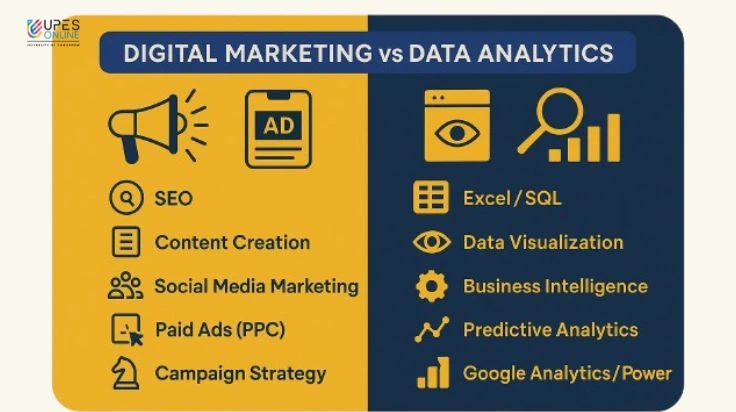Renewable Energy Project Management: Planning & Execution
Renewable energy project management is a crucial aspect of sustainable development.
A comprehensive planning and implementation process and the capacity to manage risks and overcome obstacles are necessary to efficiently handle renewable energy projects.
In addition, renewable energy project management involves coordinating various stakeholders, including project developers, finance professionals, regulators, and communities.
How do Renewable Energy Projects work?
Developing and implementing renewable energy sources for generating electricity or other energy forms is part of renewable energy project management.
Initiatives using renewable energy use energy sources, including sun, wind, hydro, geothermal, and biomass, that recharge themselves naturally.
How to become renewable energy project manager?
To succeed as a renewable energy project manager, one needs a mix of formal education, real-world experience, and specialized training in project management, renewable energy technologies, and sustainable ideas.
Types of Renewable Energy Projects

There are various types of renewable energy project management, including:
● Solar Energy Projects
Solar panels are installed in solar energy projects to collect sunlight and turn it into power.
● Wind Energy Projects
Wind energy projects involves the construction of wind turbines to capture the wind’s kinetic energy and convert it to electricity.
● Hydro Energy Projects
Building dams or other structures to catch the energy of falling water and convert it into power is a hydro energy project.
● Geothermal Energy Projects
Geothermal energy projects involve the process of well-drilling to access the heat within the earth and convert it into electricity.
● Biomass Energy Projects
Biomass energy projects involves using organic materials, such as wood chips or agricultural waste, to generate electricity or heat.
Benefits of Renewable Energy Projects
Renewable energy project development offers a range of benefits, including:
● Environmental Benefits
Projects utilizing renewable energy do not increase air or water pollution and emit little or no greenhouse gas emissions.
● Economic Benefits
Renewable energy installations in nearby areas can generate jobs and economic prosperity.
● Energy Security Benefits
Projects utilizing renewable energy lessen dependency on fossil fuels and improve energy security.
● Social Benefits
Underserved populations may be able to get inexpensive energy through renewable energy initiatives.
How to Plan and Manage a Renewable Energy Project

Planning is a crucial first step in developing any renewable energy project. When preparing a project including clean energy, take into account the following steps:
A. Conducting Feasibility Studies
Before beginning a renewable energy project development, conducting a feasibility study to determine the project’s potential is essential. A feasibility study typically includes an analysis of the green energy resource, the potential energy output, the technology required, and the project costs.
B. Conducting Resource Assessments
The number and quality of renewable energy resources that are accessible at a particular location are determined by resource evaluations. These assessments can help determine the potential energy output of a project and inform the design of the project.
C. Developing a Project Plan
The creation of a project plan comes after the completion of the feasibility and resource analyses. The project plan should outline the project’s goals, objectives, scope, timetable, and budget.
D. Establishing Project Goals and Objectives
The organization’s mission and goals should be clearly defined in the project goals and objectives. Goals and objectives should be clear, quantifiable, doable, pertinent, and time-bound.
E. Creating a Project Timeline
The project timeline should include all significant milestones, including planning, design, construction, and commissioning. The timeline should also have contingency plans to address potential delays or setbacks.
F. Identifying Potential Stakeholders
Numerous stakeholders, including project developers, financiers, regulators, and communities, are frequently involved in renewable energy projects. Stakeholders should be identified and consulted early in the planning phase to help assure the project’s success.
G. Developing a Budget
The success of a renewable energy project depends on creating a thorough budget. The budget should include all project costs, including equipment, labor, permits, and other expenses. A contingency fund should also be included to address unforeseen costs.
Planning and executing a renewable energy project entails carefully weighing several elements to enable the effective implementation of renewable energy solutions. This includes site selection, technology selection, funding, stakeholder participation, and project management.
Phases of Renewable Energy Project Development

Renewable energy project development stages involve, among other things, pre-development, engineering, design, purchasing, and building.
Here are the typical phases of renewable energy project development:
A. Concept Development
The concept development phase involves identifying the need for a renewable energy project and exploring potential solutions. It also includes conducting initial feasibility and resource assessments, identifying potential stakeholders, and developing high-level project goals and objectives.
B. Pre-Development
The pre-development phase involves more detailed feasibility and resource assessments and the development of a detailed project plan. In addition, this phase includes identifying and securing financing, conducting environmental and land use assessments, and obtaining necessary permits and approvals.
C. Engineering and Design
The engineering and design phase involves the detailed renewable energy project design, including selecting technology and equipment, developing complex engineering drawings and specifications, and identifying materials and equipment suppliers.
D. Procurement and Construction
The procurement and construction phase involves procuring equipment and materials, constructing the project infrastructure, and installing and testing renewable energy technology. This phase also includes project management, quality assurance, and risk management.
E. Commissioning and Operations
The commissioning and operations phase involves testing and authorizing the renewable energy project, including calibrating and optimizing equipment and integrating the project into the power grid. This phase also includes ongoing operations and maintenance and monitoring and reporting on project performance.
F. Decommissioning and Reclamation
Decommissioning and reclamation are also a part of this phase, which guarantees the safe and responsible removal of the project infrastructure. The infrastructure is taken down as part of the this phase.
Renewable Energy Management System

The generation and consumption of energy are managed and optimized by a renewable energy management system (REMS).
A REMS typically consists of hardware and software elements that monitor, control, and gather data on energy generation and consumption from renewable energy sources.
The International Energy Agency claims that about 90% of new power capacity increases worldwide came from renewable energy sources.
A project management approach in renewable projects involves planning, executing, and monitoring renewable energy projects to ensure successful outcomes and promote long-term sustainability.
Some of the key components of a REMS may include:
A. Energy Monitoring and Control System
This system includes hardware and software components to monitor and control energy production and consumption. The method may consist of sensors, meters, and controllers that collect energy production and consumption data and adjust energy systems accordingly.
B. Data Management and Analysis System
This system includes software tools and platforms for collecting, storing, and analyzing energy production and consumption data. Making informed judgments regarding energy systems can be done using the data to spot patterns and trends, maximize energy output and consumption, and more.
C. Predictive Analytics System
This system uses machine learning algorithms and other advanced analytics tools to predict energy consumption patterns and optimize energy production. The method may help customers and energy producers make more informed choices regarding energy use and production.
D. Energy Storage Management System
Energy storage management system uses hardware and software components to control energy storage systems like batteries or thermal storage systems. The technology can aid in energy storage optimization and guarantee energy availability.
Conclusion
Decommissioning and reclamation are two steps in renewable energy project management. Developers can support the long-term viability and sustainability of renewable energy technologies by using a structured approach to project management to generate renewable energy.
UPES Online Admission Enquiry
Recommended Courses




Latest Blogs

Digital Marketing vs Data Analytics: Which Career Should You Choose?
Battle of skills: Digital Marketing vs Data Analytics—compare 2025 salaries, skills & job roles. Expert tips to choose your future career path!
Read MoreJun 15, 2025 I 12 mins
Why Should I Choose UPES Online? 10 Reasons Why
Explore why UPES Online stands out in online education. Learn about flexible learning, UGC-approved degrees, expert faculty & credible online programs. Enroll now!
Read MoreAug 21, 2025 I 5 min
Can Distance Learning Fully Replace Traditional MBA Education? Challenges & Limitations
Find out if distance learning can truly replace a traditional MBA. Learn key challenges, limitations, expert opinion & insights.
Read MoreSep 2, 2025 I 4 mins
Online MBA Capstone Projects and the Importance They Hold
Know the importance of online MBA capstone projects. Learn how they build real-world skills, boost career opportunities, & add industry value.
Read MoreSep 7, 2025 I 5 mins
UPES Online MBA vs Other Top Universities: Why Students Prefer UPES
Compare UPES Online MBA with other top universities. Know why students prefer UPES online over others. Check fee, flexibility, faculty, ROI, & career scope.
Read MoreOct 1, 2025 I 7 mins








